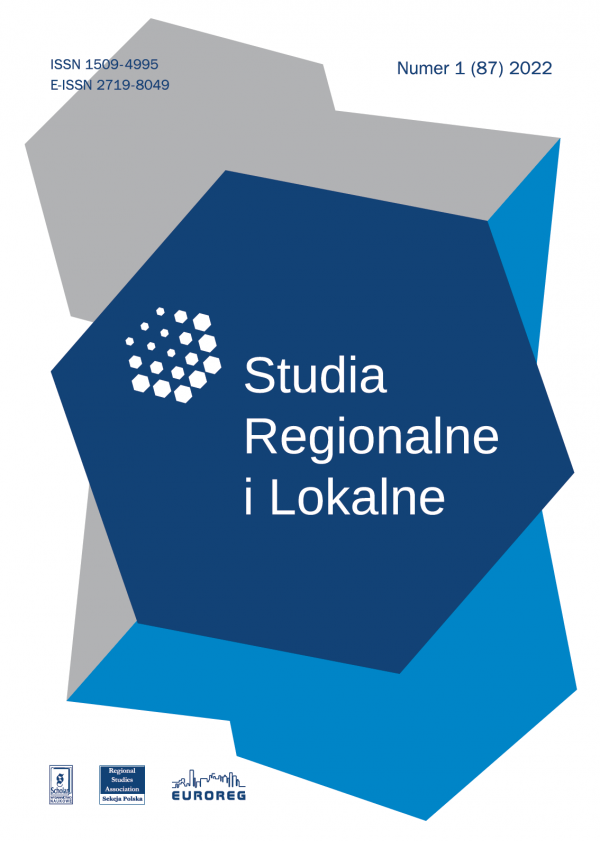Opublikowano w numerze
1(87)2022

- Darina DvornichenkoAssessing the Correlation Between Women’s Civic Engagement and Elected Political Participation: A Case Study of Six Polish Cities[więcej]
- Borce Trenovski, Gunter Merdzan, Filip PeovskiMunicipal Revenue Determinants in the South-Eastern European Economy: Evidence from North Macedonia[więcej]
- Abdul Nadjib, Oemar Madri Bafadhal, Anang Dwi SantosoSocial Capital, Bureaucratic Neutrality, and Regional Head Election in Indonesia[więcej]
- Marcin WajdaAlokacja środków na programy regionalne – analiza i ocena propozycji zawartych w projekcie Umowy Partnerstwa dla realizacji polityki spójności 2021–2027 w Polsce[więcej]
- Maria Bednarek-SzczepańskaSiła protestu w grze o przestrzeń. Wpływ społeczności lokalnej na decyzje środowiskowe dla obiektów hodowli i chowu zwierząt[więcej]
- Mariusz E. SokołowiczWartościowanie niejednoznacznego dziedzictwa modernizmu w mieście na przykładzie stacji kolejowej Warszawa Ochota[więcej]
- Grzegorz GorzelakMarek Szymaniak, Zapaść. Reportaże z mniejszych miast, Wydawnictwo Czarne, Wołowiec 2021, 253 s. (recenzja)[więcej]


